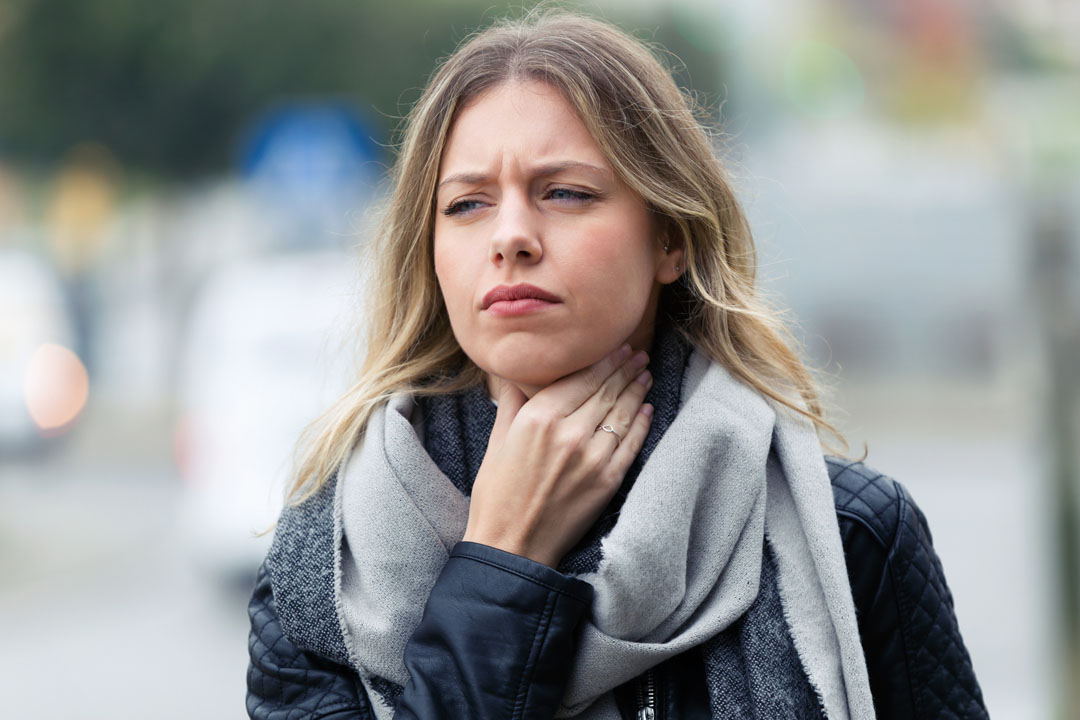Americans don’t get enough sleep to stay healthy! Only about one in four gets a full 8 hours of sleep. Yet research shows that a person’s sleep amount is a great predictor of outcome. Humans with shorter sleep times have been shown to have weakened immune systems which makes them more susceptible to viruses, bacterial infections, obesity, and cancer.
Beat viruses with a good night’s sleep
Scientists at Carnegie Mellon University studied 153 healthy men and women between the ages of 21 and 55 to determine whether lack of sleep in the weeks preceding viral exposure was associated with disease susceptibility. For 14 consecutive days, participants reported their sleep amounts and whether they felt rested. They were then quarantined and administered nasal drops containing rhinovirus and monitored for 5 days to see if they developed an infection or signs of illness.
The results were staggering. Individuals sleeping an average of fewer than 7 hours a night had almost three times (300%) greater incidence of sickness than did those who slept 8 hours or longer. When sleep efficiency was considered, those participants with sleep efficiencies averaging 92% were five and one-half times (550%) more likely to have developed a virus compared to those with a 98% average sleep efficiency rating. Sleep efficiency is the ratio of time spent sleeping compared to time spent in bed. (Archives of Internal Medicine).
Lack of sleep cripples the immune system
Sleep is the basis of the immune system. The sleep cycle begins with the body’s production of the sleep-inducing hormone melatonin. Humans start producing melatonin from their pineal glands in response to coming darkness, and its production continues into the wee hours of the night when production of the hormone prolactin kicks in. These two hormones promote the production of specialized white cells, known as macrophages and leukocytes. These specialized white cells destroy and clean up viruses, foreign bacteria, unnatural chemicals, and foreign proteins in the body, assuring the continuance of optimal health. This is the process that keeps the flu, colds, and cancer away.
Each person needs at least 8 to 9 hours of sleep for this entire cycle of melatonin and prolactin production to occur. If sleep is cut short, there is not enough time for adequate production of these hormones, and the body defenders and housekeepers they sponsor are not able to get their jobs done. With each passing night of inadequate sleep, the immune system becomes more crippled and unable to make the T cells and Natural Killer cells that seek out and destroy invaders like viruses and defective cells throughout the body.
When you stay up late or sleep with the light on, melatonin is lost and the entire immune cycle is thrown off. Without adequate melatonin production, prolactin does not get its cue to come on stage. Light stops melatonin production, so sleeping with the TV on or getting up in the middle of the night to open the refrigerator are actions hazardous to your health. That illuminated alarm clock by the bed should be turned away too.
And since melatonin production begins with the coming of darkness, any activity that involves bright light after dark also throws off its production. This is why going to the gym on a fall or winter night to exercise under bright lights is not a good idea. Neither is staring at a computer monitor after dark.
A good night’s sleep reduces cancer risk
Another recent study of women reported in Medical News Today found that, although exercise appeared to reduce the risk of colon and breast cancer, this benefit was lost if they did not get enough sleep. These scientists concluded that inadequate sleep has the opposite effect of physical activity on several key hormonal and metabolic parameters, and they designed their study to look at exactly how sleep affects the exercise/cancer risk relationship.
They studied 5,968 women who were free of cancer and monitored them for ten years through State Cancer Registries. Their findings supported the conclusion that sleep duration modifies the relationship between physical activity and all types of cancer risk among young and middle-aged women. Women who exercised and got a full night’s sleep had the lowest incidences of breast cancer as well as other cancers. However, women who exercised but received less than 7 hours of sleep a night had significantly higher cancer risk, suggesting that much of the cancer-preventative benefit of exercise is canceled out by inadequate sleep.
Sleep reduces the risk of excess weight and obesity
If you don’t get enough sleep at night, you will end up eating too much during the day, according to researchers at the University of Chicago who found that inadequate sleep alters the level of key hormones regulating the hunger signal, causing appetite stimulation. Worst of all, the foods that are craved by the sleep-deprived are the high carbohydrate foods that really pack on the pounds.
Over the past 50 years, the average sleep time for Americans has decreased by two hours per night while obesity has become an epidemic. In 1960, only one in four adults was considered overweight, and only one in nine was considered obese. Current statistics indicate that one in two adults is now overweight, and nearly one in three is obese.

Help yourself get a good night’s sleep
Can’t sleep? Don’t reach for a prescription drug because it can’t fool the body. All a drug can do is put you into a stupor that resembles sleep but is not sleep and does not confer any of the benefits of sleep. The immune systems of people with drug-induced nighttime stupors remain crippled, leaving them wide open to attack by viruses, bacteria, and cancer.
One of the best foods for the sleep-deprived is sunflower seeds. They contain high levels of tryptophan, magnesium, manganese, and Vitamin B6. These are the big four nutrients for sleep. For meat-eaters, a tryptophan-rich turkey sandwich and glass of milk for dinner may lead to lights out at an early hour and the protection against viruses that results from a completed sleep cycle.
Melatonin production begins to decline at around age 35. So anyone over the age of 35 who has trouble falling asleep may be deficient in melatonin. Taking a natural bioidentical melatonin supplement can bring peaceful sleep and all the health benefits that come with it. There is an emerging body of research that suggests melatonin supplementing with melatonin is indicated for women with breast cancer or a history of the disease.
Hormone balance is essential for a good night’s sleep. If you are not sleeping well, see a doctor who specializes in bioidentical hormone replacement or anti-aging medicine.
Editor’s Note: To help with sleep issues, we recommend using Relax & Calm from Aceva. This unique 2-in-1 formula is formulated to reduce stress and the feeling of being overwhelmed all while enhancing your quality of sleep. Clinical studies show that Relax & Calm often works faster than common sleep aids and anti-anxiety drugs without the negative side effects. Relax & Calm is s 100% hormone-free. Learn more here.




